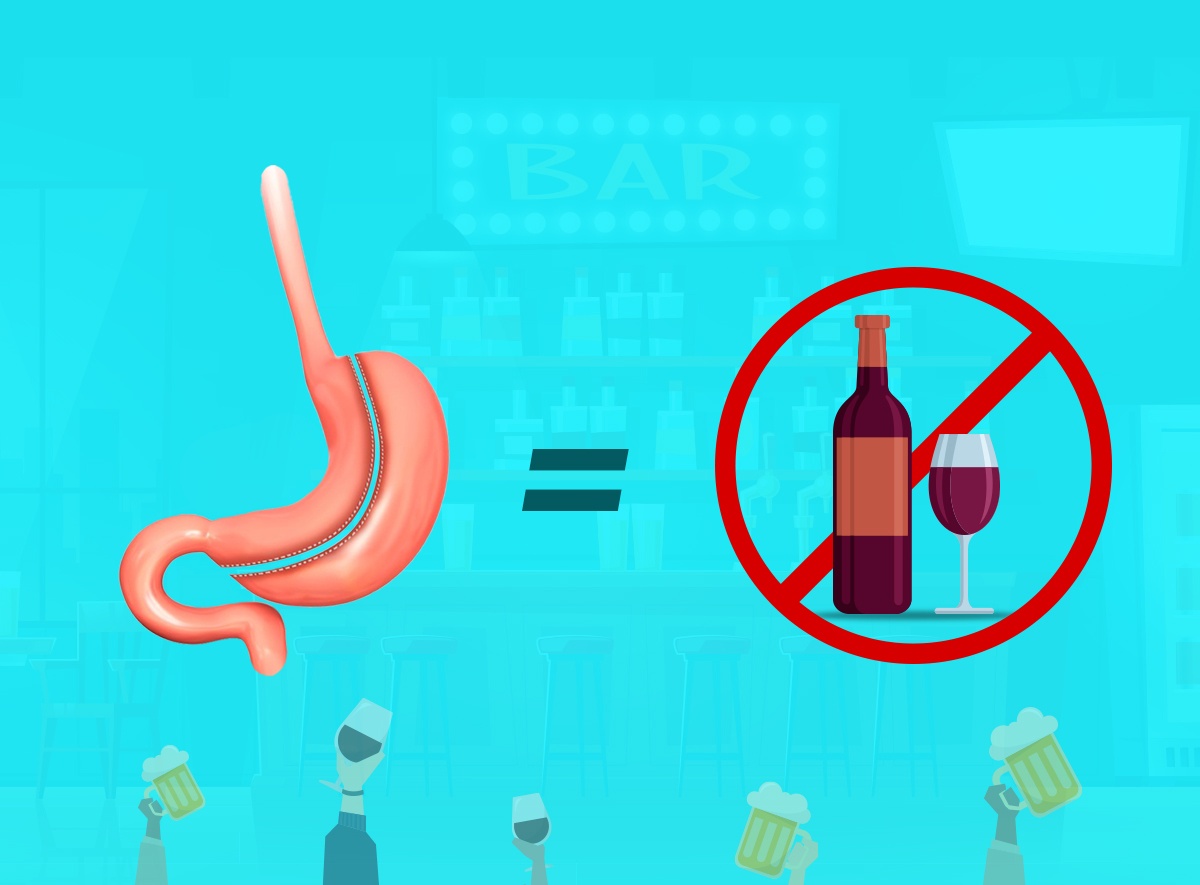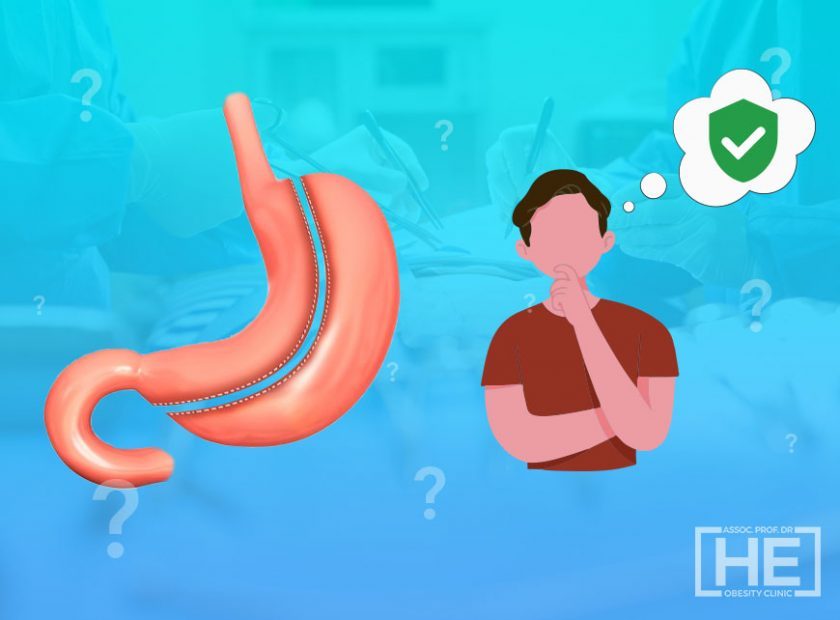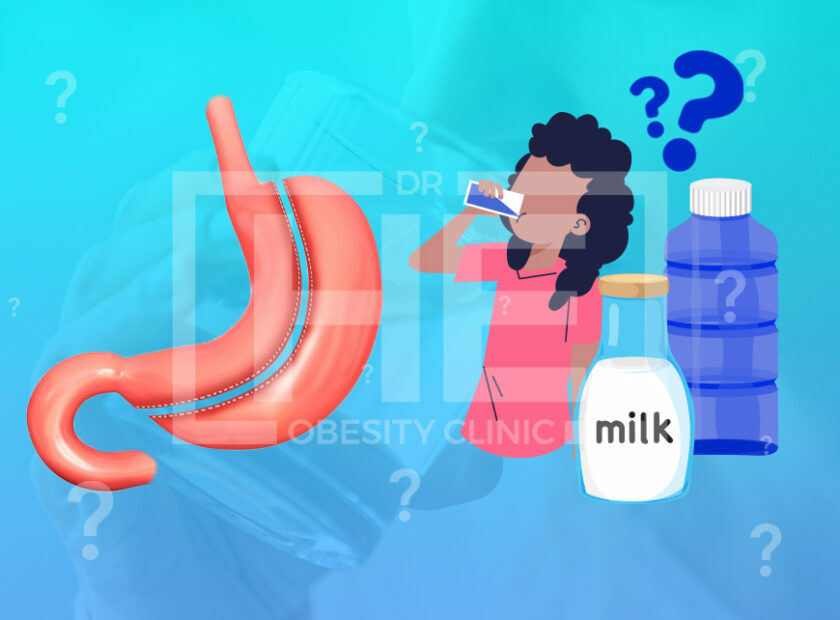
Drinking alcohol 3 weeks after gastric sleeve; Is Drinking Alcohol After Bariatric Surgery Safe? Nausea and vomiting are likely when you use alcohol after the first recovery period after surgery. Do not be alarmed if you become nauseous if you use alcohol. Stop drinking and use anti-nausea medications to prevent vomiting. This could be getting fresh air or taking prescription medications.
If alcohol routinely causes nausea, it will already be something you want to avoid. After Gastric sleeve surgery, you will definitely vomit one day during the period following your surgery. This is an expected condition, but it can also be due to a complication associated with surgery, although rarely.
While you’re unlikely to damage your stomach by vomiting, it can cause inflammation and bloating, which can lead to unwanted side effects. It is not difficult to reach the point of vomiting by drinking, as drinking alcohol after tube stomach surgery can cause you to get drunk quickly.
After Gastric sleeve surgery, some patients develop alcohol use disorders. Some sources suggest that in many cases obesity is caused by dependence on food, and addiction is still present after bariatric surgery, but has been transferred to another substance, such as alcohol. However, if this is true, most cases of bariatric surgery all result in addiction or substance use disorders.
The fact is that the number of tube stomach patients whose alcohol use disorders are reported is much smaller compared to the total number of bariatric surgery patients.
Many of these patients admit that they also struggle with alcohol use problems before surgery. This, in turn, reinforces the theory that gastric sleeve surgery and alcohol use disorders are irrelevant.
Gastric sleeve surgery is a type of weight loss surgery that can help people with severe obesity lose weight and improve their health. However, gastric sleeve surgery also requires some changes in eating habits and lifestyle, especially when it comes to alcohol. Drinking alcohol 3 weeks after gastric sleeve surgery is not recommended, as it can have negative consequences on the health, safety, and weight loss success of the patients. However, if the patients decide to drink alcohol after the surgery, they should follow some guidelines to minimize the risks and complications, and enjoy alcohol responsibly and moderately.
Drinking Alcohol 3 Weeks After Gastric Sleeve
Gastric sleeve surgery is a type of weight loss surgery that involves removing a large portion of the stomach, leaving a small, banana-shaped pouch that can hold only a few ounces of food. This surgery helps people lose weight by limiting the amount of food they can eat and reducing the hunger hormone ghrelin.
Gastric sleeve surgery is a major procedure that requires careful preparation and recovery. One of the things that patients need to be aware of is the effect of alcohol on their body after surgery. Drinking alcohol 3 weeks after gastric sleeve surgery is not recommended, as it can have negative consequences on the health, safety, and weight loss success of the patients. Here are some of the reasons why:
• Alcohol can impair the healing process. Alcohol can interfere with the healing of the stomach and the incisions, as it can increase the risk of infection, bleeding, and inflammation. Alcohol can also affect the absorption of nutrients and medications, which are essential for the recovery and well-being of the patients. Alcohol can also dehydrate the body, which can cause constipation, kidney stones, and electrolyte imbalance.
• Alcohol can increase the risk of complications. Alcohol can cause various complications after gastric sleeve surgery, such as:
• Dumping syndrome. This is a condition where the food or drink moves too quickly from the stomach to the small intestine, causing nausea, vomiting, diarrhea, cramps, sweating, and dizziness. Alcohol can trigger dumping syndrome, as it is high in sugar and calories, and can irritate the stomach lining.
• Ulcers. These are sores that develop in the stomach or the small intestine, causing pain, bleeding, and perforation. Alcohol can increase the risk of ulcers, as it is acidic and can damage the mucous layer that protects the stomach and the intestine.
• Liver damage. Alcohol can harm the liver, which is responsible for detoxifying the body and metabolizing the alcohol. After gastric sleeve surgery, the liver may be more vulnerable to alcohol, as the alcohol can reach the liver faster and in higher concentrations, due to the reduced stomach size and the decreased enzyme activity.
• Alcohol addiction. Alcohol can be addictive, as it can stimulate the reward system in the brain and create a sense of pleasure and relaxation. After gastric sleeve surgery, some patients may develop alcohol addiction, as they may use alcohol to cope with the emotional and psychological changes that come with the surgery, such as stress, depression, anxiety, or boredom. They may also become more sensitive to the effects of alcohol, as their tolerance level decreases, and they may drink more to achieve the same effect.
• Alcohol can hinder the weight loss progress. Alcohol can slow down or reverse the weight loss progress after gastric sleeve surgery, as it can:
• Provide empty calories. Alcohol is high in calories, but low in nutrients, meaning that it can contribute to the daily calorie intake, but not to the nutritional needs of the patients. One gram of alcohol provides 7 calories, which is almost twice as much as one gram of carbohydrate or protein, which provide 4 calories each. For example, one glass of wine (150 ml) can have about 120 calories, which is equivalent to one slice of bread or one small apple.
• Stimulate the appetite. Alcohol can increase the appetite and the hunger, as it can lower the blood sugar level and the inhibitions, making the patients more likely to overeat or crave unhealthy foods. Alcohol can also reduce the production of leptin, a hormone that suppresses the appetite and signals the satiety.
Affect the metabolism. Alcohol can affect the metabolism and the fat burning process, as it can reduce the thermic effect of food, which is the amount of calories burned during digestion. Alcohol can also inhibit the breakdown of fat, as the body prioritizes the metabolism of alcohol over other sources of energy.
Drinking Alcohol 3 Weeks After Gastric Sleeve
Gastric sleeve surgery is a weight loss procedure that reduces the size of your stomach by about 80%. This helps you feel full faster and eat less, resulting in significant weight loss. However, after the surgery, you need to follow a specific diet plan to ensure proper healing, nutrition, and weight management. Drinking alcohol 3 weeks after gastric sleeve surgery may not be a good idea, as it can have negative consequences on your health, safety, and weight loss success. In this article, we will explain why drinking alcohol 3 weeks after gastric sleeve is not recommended, what are the risks and effects of drinking alcohol after gastric sleeve, and how to drink alcohol safely and responsibly after gastric sleeve.
Why Drinking Alcohol 3 Weeks After Gastric Sleeve is Not Recommended?
Drinking alcohol 3 weeks after gastric sleeve surgery is not recommended, as it can interfere with your recovery, nutrition, and weight loss goals. Some of the reasons why drinking alcohol 3 weeks after gastric sleeve is not advised are:
- Alcohol can delay your wound healing: Alcohol can impair your immune system and increase your risk of infection and inflammation. Alcohol can also affect your blood clotting and increase your risk of bleeding and bruising. Alcohol can also dehydrate you and affect your skin elasticity and wound healing. Drinking alcohol 3 weeks after gastric sleeve surgery can slow down your recovery and increase your risk of complications, such as leaks, ulcers, and strictures.
- Alcohol can affect your nutrition: Alcohol can affect your nutrition in several ways. Alcohol can reduce your appetite and make you eat less, which can lead to malnutrition and deficiencies. Alcohol can also interfere with the absorption and metabolism of nutrients, such as protein, vitamins, and minerals, which can lead to anemia, osteoporosis, and nerve damage. Alcohol can also cause diarrhea, vomiting, and dehydration, which can lead to electrolyte imbalance and kidney problems. Drinking alcohol 3 weeks after gastric sleeve surgery can compromise your nutrition and affect your health and well-being.
- Alcohol can affect your weight loss: Alcohol can affect your weight loss in several ways. Alcohol can provide empty calories, which can add up and prevent you from reaching your calorie deficit. Alcohol can also stimulate your appetite and make you eat more, especially unhealthy foods, such as snacks, sweets, and fast food. Alcohol can also lower your inhibitions and make you less likely to stick to your diet plan and exercise routine. Alcohol can also affect your hormones and metabolism, which can slow down your fat burning and increase your fat storage. Drinking alcohol 3 weeks after gastric sleeve surgery can hinder your weight loss and affect your results.
What are the Risks and Effects of Drinking Alcohol After Gastric Sleeve?
Drinking alcohol after gastric sleeve surgery can have some risks and effects that you should be aware of, such as:
- Alcohol can cause intoxication and addiction: Alcohol can cause intoxication and addiction in anyone, but especially in gastric sleeve patients. This is because alcohol is absorbed faster and more intensely after gastric sleeve surgery, due to the reduced stomach size and altered anatomy. This means that you can get drunk faster and with less alcohol than before, and that you can experience more severe and longer-lasting effects of alcohol, such as impaired judgment, coordination, memory, and mood. Drinking alcohol 3 weeks after gastric sleeve surgery can increase your risk of alcohol intoxication and addiction, which can affect your safety, relationships, and quality of life.
- Alcohol can cause dumping syndrome: Dumping syndrome is a condition that occurs when food or liquid moves too quickly from the stomach to the small intestine, causing symptoms such as nausea, vomiting, diarrhea, cramps, sweating, dizziness, and palpitations. Dumping syndrome can be triggered by eating or drinking foods or liquids that are high in sugar, fat, or alcohol. Drinking alcohol 3 weeks after gastric sleeve surgery can increase your risk of dumping syndrome, which can affect your comfort and well-being.
- Alcohol can cause liver damage: Alcohol can cause liver damage in anyone, but especially in gastric sleeve patients. This is because alcohol is metabolized mainly by the liver, and after gastric sleeve surgery, the liver may be more vulnerable and less efficient at processing alcohol. This means that alcohol can accumulate in the liver and cause inflammation, scarring, and cirrhosis. Drinking alcohol 3 weeks after gastric sleeve surgery can increase your risk of liver damage, which can affect your health and survival.
How to Drink Alcohol Safely and Responsibly After Gastric Sleeve?
Drinking alcohol after gastric sleeve surgery is not prohibited, but it should be done with caution and moderation. If you want to drink alcohol after gastric sleeve surgery safely and responsibly, you should follow some tips, such as:
- Wait at least 6 months to a year before drinking alcohol: Waiting at least 6 months to a year before drinking alcohol after gastric sleeve surgery can give your body enough time to heal and adjust to the surgery, and to establish a healthy and stable diet and lifestyle. This can also help you avoid the risks and effects of drinking alcohol too soon after the surgery, and to achieve your weight loss goals.
- Consult your doctor before drinking alcohol: Consulting your doctor before drinking alcohol after gastric sleeve surgery can help you determine if you are ready and able to drink alcohol, and if you have any medical conditions or medications that may interact with alcohol. Your doctor can also advise you on how much and how often you can drink alcohol, and what types of alcohol are best for you.
- Drink small amounts and slowly: Drinking small amounts and slowly after gastric sleeve surgery can help you prevent overconsumption and intoxication, and to monitor your tolerance and reaction to alcohol. You should start with one drink or less, and wait at least an hour before having another drink. You should also sip your drink slowly and avoid gulping or chugging. You should also avoid drinking on an empty stomach, and have some food or snacks before or while drinking.
- Choose low-calorie and low-sugar drinks: Choosing low-calorie and low-sugar drinks after gastric sleeve surgery can help you avoid excess calories and sugar, and to prevent dumping syndrome and weight gain. You should avoid drinks that are high in calories and sugar, such as beer, wine, cocktails, and liqueurs. You should also avoid drinks that are carbonated, as they can cause gas and bloating. You should opt for drinks that are low in calories and sugar, such as spirits mixed with water, diet soda, or sugar-free juice, or light beer or wine.
- Drink plenty of water: Drinking plenty of water after gastric sleeve surgery can help you stay hydrated and fill up your stomach, making you feel less hungry and less likely to drink more alcohol. It can also help you dilute and flush out the alcohol from your body, and to prevent dehydration, hangover, and liver damage. You should drink at least 64 ounces of water a day, and drink a glass of water before, between, and after each alcoholic drink.
- Avoid drinking and driving: Avoiding drinking and driving after gastric sleeve surgery can help you prevent accidents and injuries, and to protect yourself and others. You should never drink and drive, even if you think you are sober or have only had one drink. You should always have a designated driver, use public transportation, or call a taxi or a friend to take you home. You should also avoid drinking if you are going to operate any machinery or perform any tasks that require concentration and coordination.
Guidelines for Drinking Alcohol 3 Weeks After Gastric Sleeve
Drinking alcohol 3 weeks after gastric sleeve surgery is not advisable, as it can have negative consequences on the health, safety, and weight loss success of the patients. However, if the patients decide to drink alcohol after the surgery, they should follow some guidelines to minimize the risks and complications, such as:
• Wait at least 6 months after the surgery. This is the minimum time recommended by most surgeons and nutritionists, as it allows the stomach and the incisions to heal properly, and the patients to adjust to their new diet and lifestyle. Some patients may need to wait longer, depending on their individual situation and the advice of their medical team.
• Drink in moderation and with caution. This means limiting the amount and the frequency of alcohol consumption, and avoiding binge drinking or drinking on an empty stomach. The patients should also monitor their blood alcohol level and their tolerance level, as they may change after the surgery. The patients should also avoid driving or operating machinery after drinking alcohol, as they may be impaired or intoxicated.
• Choose low-calorie and low-sugar drinks. This means avoiding drinks that are high in calories, sugar, or carbonation, such as beer, wine, cocktails, or mixed drinks. These drinks can trigger dumping syndrome, ulcers, or weight gain. The patients should opt for drinks that are low in calories, sugar, or carbonation, such as light beer, dry wine, or spirits with water or diet soda.
• Drink plenty of water and stay hydrated. This means drinking water before, during, and after drinking alcohol, to prevent dehydration, constipation, kidney stones, and electrolyte imbalance. The patients should also avoid drinking water with their meals, as this can fill up their stomach and prevent them from getting enough nutrients.
• Eat healthy and balanced meals. This means eating small and frequent meals that are rich in protein, fiber, and vitamins, and low in fat, sugar, and carbs. These meals can help the patients feel full and satisfied, and prevent overeating and cravings. They can also help the patients maintain their muscle mass and metabolism, which are important for weight loss.
• Seek professional help if needed. This means consulting with their surgeon, nutritionist, psychologist, or primary care doctor, if they have any questions, concerns, or difficulties with alcohol after the surgery. They should also seek professional help if they suspect that they have developed alcohol addiction, or if they experience any signs or symptoms of complications, such as vomiting, bleeding, pain, or infection.
Can you drink alcohol after gastric sleeve?
The first 6 months after surgery should not be consumed. 6 months after surgery, we recommend wine because it contains low alcohol and iron. Nausea and vomiting are likely when you use alcohol after the initial recovery period. Do not be alarmed if you become nauseous if you use alcohol.
Stop drinking and use anti-nausea medications to prevent vomiting. This could be getting fresh air or taking prescription medications. If alcohol routinely causes nausea, it will already be something you want to avoid.
Why can’t you have alcohol after gastric sleeve?
Alcohol after gastric sleeve surgery enters the intestine and blood much earlier and causes drunkenness much faster. Alcohol is not recommended only in tube stomach surgery but after all obesity and Metabolic Surgery. Alcohol can affect you in a different way, leading to increased alcohol problems.
You are at risk, even if you have never had any alcohol problems or even consumed any alcohol before. Alcohol consumption should be very careful. Those who do not drink alcohol are more successful at losing weight. Alcohol is harmful in patients undergoing obesity surgery.
Nausea and vomiting are likely when you use alcohol after the initial recovery period. Do not be alarmed if you become nauseous if you use alcohol.
Stop drinking and use anti-nausea medications to prevent vomiting. This could be to get fresh air or take prescription medications. If alcohol routinely causes nausea, it will already be something you want to avoid.
What alcohol is best to drink after gastric sleeve?
Although alcohol consumption is prohibited after gastric sleeve surgery, you can consume some alcohol at certain times. You should not consume beer and acidic carbonated drinks for life. You can consume wine from the third month.
We recommend that patients consume drinks such as tequila, such as brandy, such as whisky, which has a higher alcohol content, after the fifth month.
Extreme caution should be exercised in the consumption of alcohol. Limited alcohol consumption is harmless, but still not recommended. You should avoid alcohol as much as possible. Thus, you will be more comfortable during the post-operative diet period.
Precautions when taking alcohol after Gastric sleeve surgery
Drinking alcohol 1 year after Gastric sleeve surgery is a personal option. It can be safe when done with moderation and caution. There is nothing that prevents moderate and responsible alcohol use after tube stomach surgery after going through the initial healing process.
Before filling your glass, it’s always a good idea to consult your surgeon to discuss alcohol use in your own situation. Avoid drinking alcohol during the first year after surgery. The first year is when weight loss is fastest and you are most susceptible to the intoxicating effects of alcohol.
If you prefer to drink, always have someone you trust with you. This person should know that you have undergone tube stomach surgery and understand how this affects you in how you consume alcohol. It would also be helpful for this person to promise to stay sober, to give you a ride home if necessary.
Be careful not to exaggerate. Plan ahead how many drinks you’ll drink and make sure you’ve given yourself enough time between drinks. Be sure to eat a meal before drinking. Never drink on an empty stomach.
After surgery, the state of drunkenness due to alcohol use can be seen much more easily and often. After drinking a few glasses of wine, gastric bypass patients are more likely to have alcohol levels above the legal limit and may even show different signs of poisoning.
In other words, the patient gets drunk more quickly with less alcohol due to differences in absorption, and they may not notice it. It also takes them twice as long as usual to get sober again.
Alcohol has a high calorie level. A glass of wine or beer averages 100-150 calories, plus the amount of calories a mixed drink (cocktail) can contain can reach 700 calories. Alcohol can lead to weight gain again. Calories in alcohol can easily accumulate and contribute to back weight gain in obesity patients.
Alcohol can lead to’ dumping syndrome’. Most alcoholic beverages contain high levels of sugar, which can lead to dumping syndrome, a painful and undesirable side effect of obesity surgery. Alcohol can affect your liver. Alcohol can damage liver cells and even cause the death of these cells.
The liver metabolizes alcohol, which means it decomposes to facilitate its excretion from the body. But the metabolic changes that occur after surgery, the fact that the stomach and intestines are weaker in processing alcohol, lead to more pressure on the liver.
If you drink more alcohol than you can handle, your liver can be severely damaged. Obesity patients are already at risk of liver damage.




